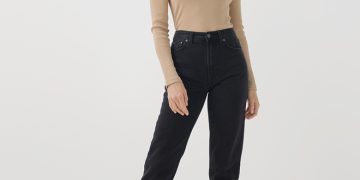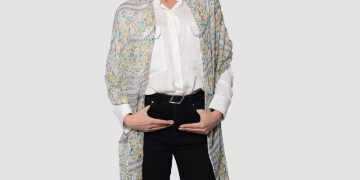Introduction to Fair Trade Fashion
Fair trade fashion represents a movement towards greater social and environmental responsibility in the fashion industry. It embodies principles of fair wages, safe working conditions, and sustainable production methods, aiming to empower artisans and workers while minimizing the environmental impact of clothing production. By supporting fair trade brands, consumers can play a vital role in promoting ethical practices and creating positive change in the fashion supply chain.
Benefits of Fair Trade Fashion
Fair trade fashion offers numerous benefits for both producers and consumers. By ensuring fair wages and working conditions, fair trade initiatives contribute to the economic empowerment of artisans and workers, particularly in developing countries. Additionally, fair trade practices promote environmental sustainability and community development through responsible sourcing of materials and support for local communities.
Criteria for Fair Trade Certification
To be certified as fair trade, brands must adhere to strict criteria that ensure transparency, fair wages, and sustainable production practices. This includes maintaining transparent supply chains, providing fair wages and benefits to workers, and implementing environmentally sustainable production methods. By meeting these criteria, fair trade brands demonstrate their commitment to ethical practices and social responsibility.
Top Fair Trade Fashion Brands
Several leading brands have emerged as champions of fair trade fashion, setting the standard for ethical practices in the industry. Brands like Patagonia, People Tree, and Eileen Fisher are known for their commitment to fair trade principles and sustainability. Through their efforts, these brands have made significant contributions to promoting ethical fashion and driving positive change in the industry.
Fair Trade Materials and Production
Fair trade fashion prioritizes the use of eco-friendly and ethically sourced materials, such as organic cotton, recycled fabrics, and natural dyes. Additionally, fair trade production processes often involve artisan craftsmanship and traditional techniques, preserving cultural heritage and supporting local communities. By choosing fair trade products, consumers can feel confident that their purchases are made with care for people and the planet.
Challenges and Solutions
Despite the benefits of fair trade fashion, there are challenges to widespread adoption, including scalability and accessibility. Many small-scale artisans and producers face barriers to certification and market access, limiting their ability to participate in fair trade initiatives. To address these challenges, stakeholders must work together to promote greater awareness, provide support for certification and training, and create opportunities for collaboration and partnership.
Consumer Education and Awareness
Consumer education plays a crucial role in driving demand for fair trade fashion and encouraging ethical purchasing decisions. By raising awareness about the importance of fair trade practices and providing resources for learning, consumers can make informed choices that support positive change in the industry. Online platforms, educational materials, and advocacy organizations can help empower consumers to become agents of change in the fashion industry.
Collaborations and Partnerships
Collaborations between brands, NGOs, and government agencies are essential for advancing fair trade practices and promoting social responsibility in the fashion industry. By working together, stakeholders can leverage their resources and expertise to create meaningful impact and drive systemic change. Partnerships that focus on capacity building, market access, and advocacy can help expand the reach of fair trade initiatives and amplify their impact.
Measuring Impact and Progress
Measuring the impact of fair trade initiatives is essential for evaluating effectiveness and identifying areas for improvement. Tools and metrics for assessing social, environmental, and economic outcomes can help stakeholders track progress and set goals for continuous improvement. By monitoring impact and progress, fair trade brands can demonstrate accountability and transparency, inspiring consumer confidence and trust.
Future of Fair Trade Fashion
The future of fair trade fashion is bright, with growing awareness and demand for ethical and sustainable products. As consumers become more conscious of the social and environmental impact of their purchasing decisions, the demand for fair trade fashion is expected to increase. Innovations in materials, production methods, and supply chain management will further drive progress towards a more ethical and sustainable fashion industry.
Case Studies
Real-life examples of fair trade initiatives provide insight into the impact of ethical practices on communities and the environment. From artisan cooperatives in rural India to sustainable fashion brands in Europe, these case studies highlight the transformative power of fair trade fashion in creating positive change. By sharing success stories and lessons learned, stakeholders can inspire others to embrace fair trade principles and work towards a more just and sustainable future.
Conclusion
In conclusion, fair trade fashion represents a powerful force for positive change in the fashion industry. By supporting brands that prioritize ethical practices and sustainability, consumers can contribute to the economic empowerment of artisans and workers, promote environmental stewardship, and drive progress towards a more equitable and sustainable future. Together, we can build a fashion industry that values people and the planet, creating a world where fashion is not just beautiful but also fair.

FAQs:
- How can I identify fair trade fashion brands?
Look for certifications such as Fair Trade Certified, GOTS (Global Organic Textile Standard), and Fair Wear Foundation, which indicate that brands adhere to fair trade principles and ethical practices.
- Are fair trade products more expensive than conventional fashion items?
While fair trade products may sometimes come with a higher price tag due to the cost of ethical production methods and fair wages, they often offer better quality and durability, making them a worthwhile investment.
- What can I do to support fair trade fashion?
Choose fair trade products whenever possible, educate yourself about fair trade principles, and advocate for greater transparency and accountability in the fashion industry. By voting with your wallet and supporting ethical brands, you can help drive positive change in the industry.
- How does fair trade fashion benefit communities and workers?
Fair trade fashion provides economic opportunities for artisans and workers in developing countries, empowering them to earn fair wages, access education and healthcare, and improve their quality of life. Additionally, fair trade initiatives often support community development projects, such as schools, healthcare facilities, and clean water initiatives.
- What role do consumers play in promoting fair trade fashion?
Consumers have the power to drive demand for fair trade fashion and hold brands accountable for their social and environmental practices. By making informed choices and supporting ethical brands, consumers can create a market for sustainable and responsible fashion, driving positive change in the industry.




